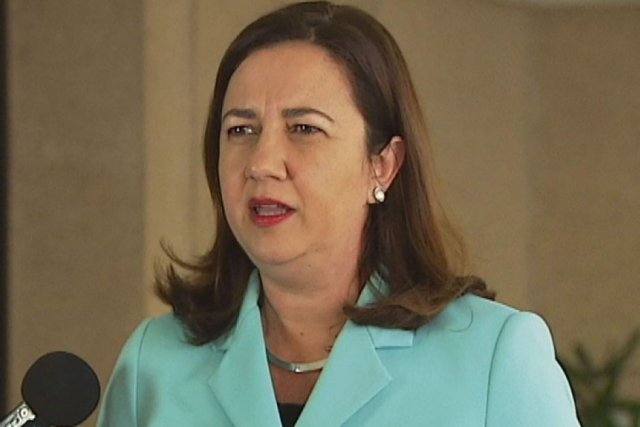
With 44 seats (to the LNPs 42) and the support of Independent Peter Wellington, the ALP leader Annastacia Palaszczuk was sworn in as Premier on February 14. The full Cabinet of 14 (including 8 women) was sworn in on February 16.
The ALP minority government represents a number of firsts for Queensland: first cabinet with a majority of women ministers; first female team of Premier and Deputy Premier (Jacki Trad); and first woman indigenous cabinet minister Leeanne Enoch.
It is assumed that the axing of asset sales will be the first item on the new government’s to-do list.
The trade union movement wasted no time in arranging meetings this week with government ministers, hoping they will redress the anti-union program of the previous government. The government will be urged to give priority to the restoration of conditions lost under the LNP’s industrial relations laws.
These laws have destroyed the independent industrial relations system, severely limited the right of workers to organise and limited the right of unions to access workplaces. The LNP also moved the Labour Day holiday from May to October.
Given the key role played by the union movement in the electoral success of the Labor government (and the defeat of the Bligh government three years before), it would be foolhardy for the government to ignore the unions’ claims.
The premier announced that the focus of the government will be on building a strong economy to bring about employment recovery. Unemployment in Queensland has risen from 5.5% in March 2012 to 6.5% in January 2015.
Labor was light on big ticket election promises to boost jobs. It based its economic policy on two planks: the merging of government-owned electricity distribution and retail arms Energex, Ergon and Powerlink, as well as generators CS Energy and Stanwell, with savings of $150M; and allocating two-thirds of earnings from government-owned corporations to reduce debt from 2018/2019.
The Electrical Trades Union (ETU) supports the merging of the electricity entities on the condition that there are no forced redundancies and the Uniform Tariff Policy (UTP) is maintained — this ensures that customers in regional areas are not disadvantaged.
The government had also promised to grow public service frontline jobs and will be under pressure from the community to deliver.
Beyond negotiating a fairer deal from the Commonwealth on the GST carve up, funding the 2015/2016 state budget presents a challenge. During the election campaign Labor committed to no new fees, no increases in state taxes or mining royalties and no increase in electricity prices.
The export price of coal has been in free-fall, leading to the closure of some mines and delaying the opening of others as finance dries up. The government has indicated support for the expansion of new mines — but with greater environmental safeguards and no public subsidies for infrastructure development.
However basing the economic health of the state on the expansion of extractive industries is a dead end. Coal seam gas and liquified natural gas (CSG/LNG) will soon overtake coal as Queensland’s main mineral export.
There are grave environmental consequences for this with increased shipping through the Great Barrier Reef World Heritage Area. As part of its jobs plan the government has said it will ensure that 30% of ships’ crews are Australian.
The impact of expanding CSG/LNG (as well as extraction from shale and oil) on agricultural areas and ground and artesian water are also key considerations. The environmental threat to the world heritage area also threatens jobs in the tourist industry — an industry that employs far more workers that mining.
Business industry groups in general, have not responded well to the election of an ALP minority government, casting doubt on its stability and links with unions. However some see it as an opportunity
The ABC reported on February 18 that the project director of the proposed Aquis Great Barrier Reef Resort near Cairns, stated that he is hopeful new Treasurer Curtis Pitt will be able to move the project out of a "holding pattern''.
"I think having a senior minister who’s also a local Member at the Cabinet table can only be a good thing for the area.”
"We had discussions prior to the election with the then-Opposition Leader and the then-Shadow treasurer Curtis Pitt. … [They] indicated support for the project and in particular identified the job creation opportunities that were available."
However, there has been a strong community campaign opposing this development. The campaign will need to continue to mobilise to counter the influence of corporate big business and hold the government to account.
Like the article? Subscribe to Green Left now! You can also like us on Facebook and follow us on Twitter.